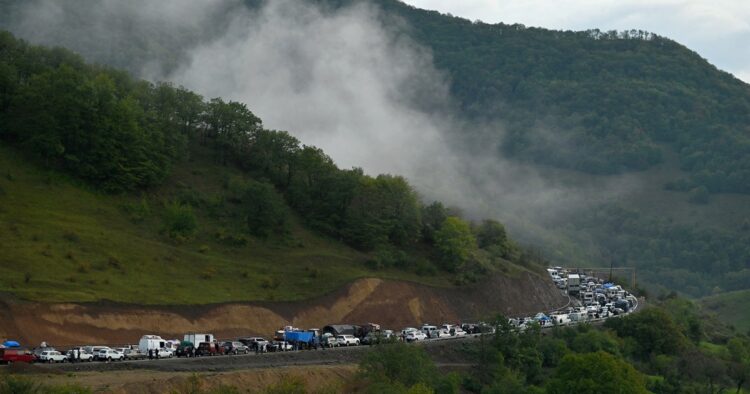Armenia has called upon the International Court of Justice (ICJ) to hold Azerbaijan accountable for what it describes as the ethnic cleansing of Armenians from the Nagorno-Karabakh region. The ICJ, the top court of the United Nations, heard arguments from Armenia’s representative, Yeghishe Kirakosyan, who accused Azerbaijan of systematically erasing all traces of ethnic Armenians’ presence in the region.
The conflict between Armenia and Azerbaijan over the Nagorno-Karabakh region has a long history, marked by decades of confrontation.
Recently, escalation occurred when Azerbaijan’s armed forces recaptured the mountainous region in September, ending years of ethnic Armenian control. This military action prompted a mass exodus of ethnic Armenians fleeing to Armenia for safety.
Armenia’s case against Azerbaijan, initially filed at the ICJ in 2021, alleges that Azerbaijan has engaged in glorifying racism against Armenians, permitting hate speech, and destroying Armenian cultural sites. These actions, Armenia argues, violate a U.N. anti-discrimination treaty, putting Azerbaijan in breach of international law.
However, Azerbaijan denies all accusations and challenges the jurisdiction of the ICJ over the matter.
During the hearings, Azerbaijan argued that most of Armenia’s complaints stemmed from armed conflicts over Nagorno-Karabakh, which they claim are outside the scope of the U.N. treaty.
Moreover, Azerbaijan accused Armenia of failing to genuinely engage in negotiations before resorting to legal action at the ICJ. Armenia refuted these claims, asserting that it had pursued negotiations with Azerbaijan in good faith and beyond the point of utility.
The ICJ issued emergency measures in November, instructing Azerbaijan to allow ethnic Armenians who fled Nagorno-Karabakh to return. Azerbaijan maintains that it has pledged to ensure the safety and security of all residents in the region, regardless of their national or ethnic origin, and denies any claims of forced expulsion of ethnic Armenians from Karabakh.
The ongoing hearings at the ICJ will focus solely on legal objections to the court’s jurisdiction and will not delve into the substance of the discrimination claims. It is important to note that a final ruling in both cases may take years to materialize, and the ICJ lacks enforcement mechanisms for its decisions.
Thus, the resolution of this contentious issue remains uncertain, while tensions between Armenia and Azerbaijan persist over the Nagorno-Karabakh region.

















Comments